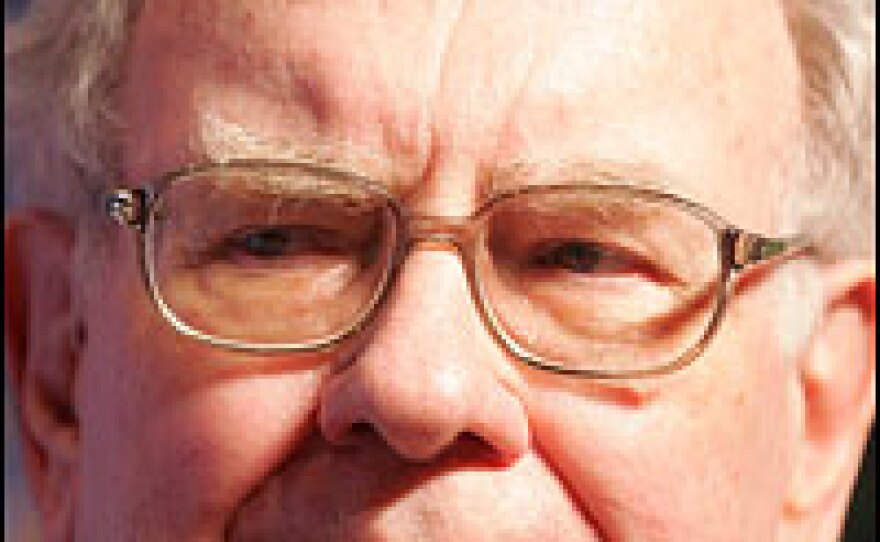
Warren Buffett's move to trim Berkshire Hathaway's holdings in PetroChina, the Chinese government-owned company that explores for oil in Sudan, is being seen as a victory for activists who say the company indirectly supports genocide in Darfur.
To make that point in a public way, the Save the Darfur coalition produced a TV ad in which a broker talks to a couple about their investments. "You're really making a killing in Darfur," the broker says. A narrator then urges viewers to stay away from Sudanese investments, and to visit the group's Web site to check on what mutual funds have money there.
Earlier this year, Berkshire Hathaway owned more than 10 percent of the non-governmental shares of PetroChina. That number has since dropped to around 3 percent. And analysts say it may continue to drop.
But while the social pressure may have influenced Buffett's decision to sell, profit-taking may have been the main motivation, said Brian Bethune, an economist with the forecasting and analysis firm Global Insight.
"I would say that primarily it's a business decision," Bethune said, "but there may have been some influence in terms of what was happening in Sudan."
Activists unhappy with PetroChina's involvement in Sudan are also hoping to use the upcoming Olympic Games in Beijing to pressure China to change its policy.
With China's economy growing at a double-digit rate, the country is seeking energy resources to support that growth. The Chinese government is the largest foreign developer of oil fields in Sudan.
"The primary issue is securing energy assets for China," Bethune said.
But its growing appetite for fuel also means that the country is relying on other options besides Sudan.
"At the political level, my sense of it is that they're willing to be persuaded to perhaps deemphasize that particular part of their investment," Bethune said. "The investment in Sudan is only one piece in a massive jigsaw puzzle of assets that PetroChina is trying to accumulate."
Earlier this year, Bill Gates said "changes in our investment practices would have little or no impact" on environmental and human rights abuses. The latest move by Buffett, who has pledged to give away a huge chunk of his fortune through the Bill and Melinda Gates Foundation, suggests that Gates' statement may not be true in all cases.
"In some instances, where there's a lot of sensitivity at the political level, I think there can be some influence," Bethune said. And that may be especially true in China, where political and economic goals often become entangled.
"There may be some ability to have some influence, or at least exert some pressure," Bethune said.
Copyright 2022 NPR. To see more, visit https://www.npr.org. 9(MDAzMjM2NDYzMDEyMzc1Njk5NjAxNzY3OQ001))





